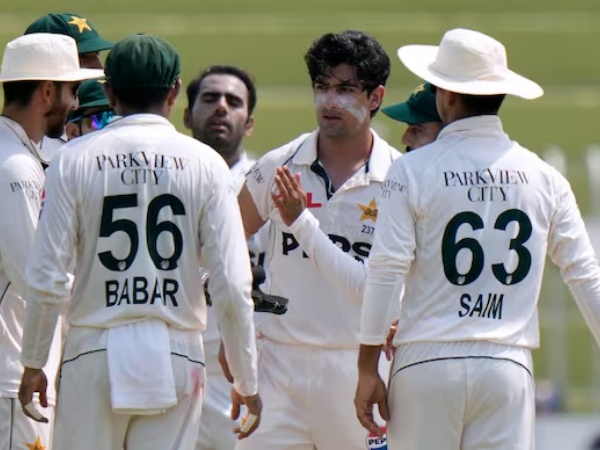views : 692
3 Min Read
Pakistan vs Bangladesh: Ramiz Raja takes a dig at Pakistan's poor bowling performance
Ramiz Raja voiced his frustration following Pakistan's 10-wicket defeat to Bangladesh in the first Test match held in Rawalpindi on Sunday, August 25. This loss was particularly significant for Bangladesh, as it marked their first-ever Test victory over Pakistan. The win has also propelled Bangladesh to the sixth position in the World Test Championship (WTC) standings, underscoring their rise in international cricket. Raja expressed his disappointment with Pakistan’s fast bowlers, who, according to him, failed to make an impact throughout the Test. Despite selecting a strong pace attack, which included Shaheen Afridi, Naseem Shah, Khurram Shahzad, and Mohammad Ali, the bowlers were unable to penetrate Bangladesh’s batting lineup effectively. The hosts' bowling strategy also featured all-rounder Agha Salman and part-timers Saim Ayub and Saud Shakeel, who were tasked with spin duties.
The lackluster performance by the fast bowlers was a key factor in Pakistan’s inability to challenge Bangladesh, who managed to chase down the target without losing a single wicket. Raja’s critique highlights the need for a more effective and cohesive bowling strategy as Pakistan prepares for the remaining fixtures. The match result has been a significant setback for Pakistan, and it is clear that substantial improvements will be needed to avoid similar outcomes in future encounters.
"The fast bowling reputation has finished. The debacle started during the Asia Cup. The confidence crisis in this bowling lineup, especially in fast bowling, started from the match against India. Our fast bowlers were thrashed in seaming conditions. Then the entire world figured out that if they are attacked, this bowling attack is not of the same standard as its reputation," former Pakistani cricketer Ramiz Raja said while speaking on his YouTube show.
Last year at the R Premadasa Stadium in Colombo, India set a formidable target by posting 356 for 2, thanks to impressive centuries from Virat Kohli and KL Rahul. The pitch was in excellent condition, offering a good balance between bat and ball. Despite the favorable conditions, Pakistan struggled significantly in their reply, being dismissed for just 128. This stark contrast in performance highlighted the challenges faced by Pakistan’s bowlers and batters alike.
Ramiz Raja had pointed to this match as an example of how aggressive batting can exploit bowling weaknesses. Kohli and Rahul’s stellar innings underscored the impact of proactive, high-quality batting against bowlers who are not able to maintain consistent pressure. Pakistan's collapse in response further illustrated the difficulties of coping with aggressive, high-caliber batting on a well-prepared pitch. This encounter serves as a reminder of the need for cohesive team strategies and adaptability to different playing conditions, especially when facing top-tier opposition.
"Everyone's speed has gone down and the skill level is not there. The Bangladesh fast bowlers looked more penetrative. Our bowlers are mostly looking to enjoy or create drama after picking up a wicket rather than create their reputation through performance," the 1992 World Cup winner added.
